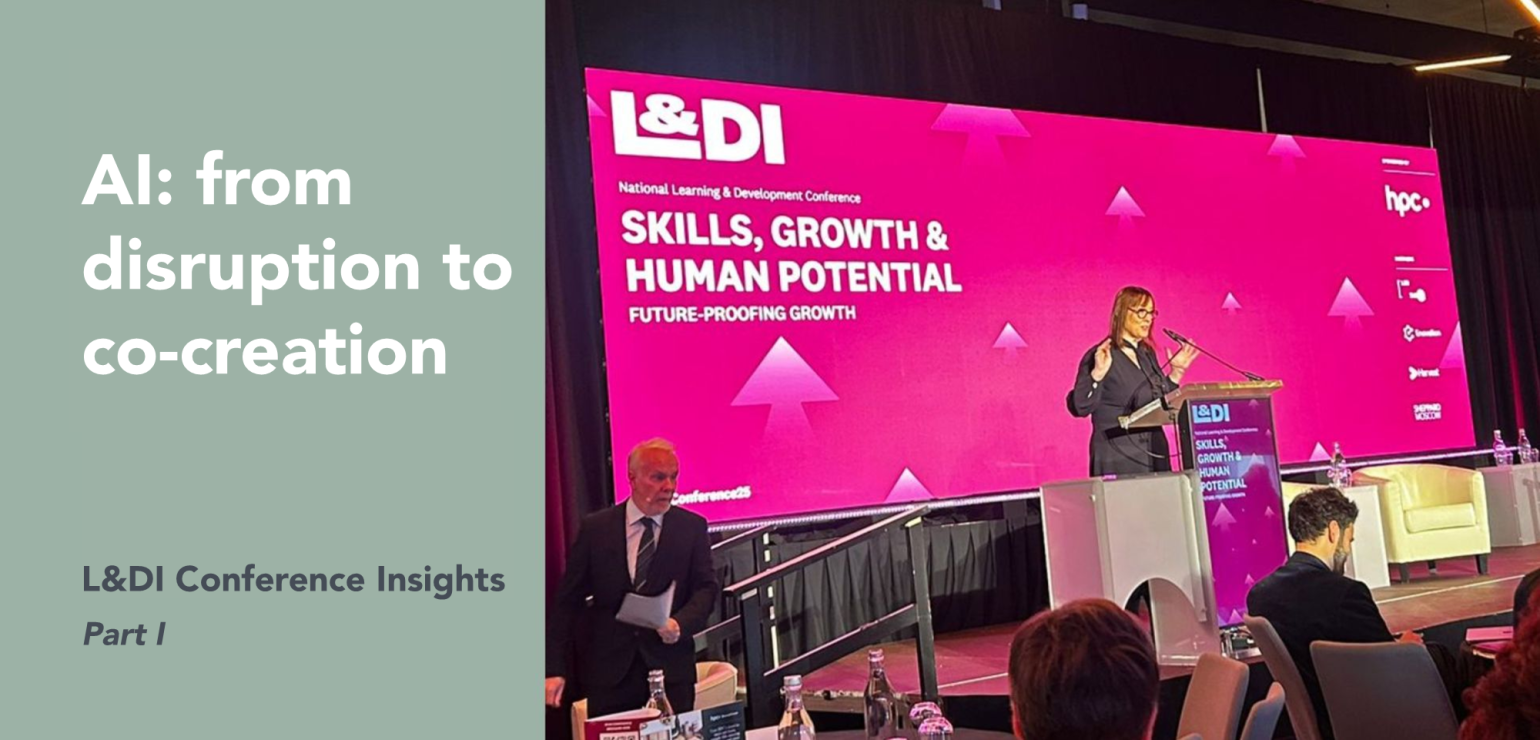Life sciences sector spotlight

Since the pandemic, our appreciation of the pharmaceutical and wider life sciences industry has sharpened. What the industry, with worldwide support, were able to achieve in fast-tracking vaccines for example was unprecedented.
Every industry has its own nuances and quirks, particularly when it comes to people and culture. The pharma world is demanding, highly regulated, highly specialised and extremely competitive. People taking up senior leadership roles are often scientists, deeply technical, with super-high IQ: for many, their success has been built by leveraging what they know, trading on their expertise.
Trouble is, effective leadership in a complex matrix environment demands more from leaders and leadership teams than technical brilliance if their organisation is to remain competitive.
To innovate and be agile in such a highly regulated and specialised environment, effective leadership – both from individuals and teams – is critical. Large-scale pharmaceutical companies are facing incredible market pressure from fleet-of-foot start-ups who are leading the charge in innovation and invention, unburdened by legacy processes and unwieldy bureaucracy. So as Bayer’s new CEO Bill Anderson has been saying consistently for years – you have to bust the bureaucracy in order to be agile and responsive to an increasingly complex and competitive external environment.
And, of course, the internal context in these organisations is more complex, with the predominance of matrix structures which place new and significant demands on leaders. Not only do senior leaders need to develop their local people and culture, but they need to work coherently and truly collaboratively in matrix teams to drive the global organisation forward.
The power of the team: back to basics
The team is a collective of individuals, each bringing their own contribution and combining to create an entity greater than the sum of the parts. A true leadership team is one in which the members hold one another mutually accountable for progress towards their shared vision and goals, with a strong sense of collective endeavour. As systemic team coaches, Sheppard Moscow consultants usually start out with a discovery phase, exploring the team’s current and desired future levels of effectiveness. Often, team members tell us the team is just fine: ‘we all turn up to meetings, we have a set agenda, we each look after our own bit, and we are nice to one another’. So, we get suspicious and dig a bit deeper, often finding that what we are actually dealing with is a group of senior leaders who happen to report to the same boss or, increasingly, who happen to be co-located and have lots of different bosses across the global matrix.
Rather than being a true leadership team, what we’re meeting is a working group / coordinating committee.
Somehow, the shift to matrix structures seems to have reinforced this effect. An individual may be situated at a major operations site in Ireland, reporting to someone in the USA and working closely with functional colleagues in Turkey. People come together in regional ‘teams’ led by someone to whom only half of the team reports. This raises questions about the effect of hierarchy and competing agendas; questions about which team’s needs takes precedence? It gets confusing for people, no matter how smart they are. To cut through all this, our question to a group of leaders who want to truly be a leadership team is “What is your collective endeavour – the outcome – that only this group of leaders working together can achieve?” (props to Prof Peter Hawkins…) In the light of how this question is answered, we then explore how might this team best work together, and with their stakeholders. This reflective approach provides the clarity for teams to align, to look long term and keep their headline strategy in focus.
The matrix also demands a wider remit of the leader. We often see pharmaceutical leaders progressing up through a functional stovepipe, and while they’re highly specialised they may lack experience of thinking more broadly and cross-functionally. This is where the power of the team is so important. We help the wider team to appreciate these different perspectives and collectively think more broadly than they might do coming from their functional position.
Transitioning from expert scientific leader to team and people leader
With a scientific formation, senior leaders in pharma are extremely bright and have been encouraged all their lives to rely upon their deep knowledge and sharp, highly rational cognitive powers. At Sheppard Moscow we have extensive experience in working with highly technical specialists, be they leaders in global financial institutions, high-tech manufacturing, or complex pharmaceutical companies. To help them develop their ‘soft skills’, we meet them where they are, and know how to ignite curiosity about this new dimension of their leadership. The further opportunity is to help them to broaden their capacity in how they relate to self and others, how they broaden their perspectives and develop their capacity for integrative thinking i.e. reconciling the multiple and competing perspectives within a global matrix organisation operating in a complex and constantly shifting context.
Leaders with a scientific background like the rigour and integrity of Sheppard Moscow’s approach, and this fosters trust in us as consultants, facilitators and team coaches. Our methodology is deeply rooted in well-regarded, proven psychological research and our approach is pragmatic, grounded in their business reality and with the business imperative always in sight. And funny enough, once that bar is met, the focus readily shifts to how we relate with them as humans, figuring out this tricky leadership stuff together.
Leading toward a new culture
At the risk of over-generalising, we do notice that for leaders whose formation has been largely scientific, such as those we meet in the pharma industry, vulnerability and trust – two key ingredients for effective leadership and a culture of innovation – are extremely difficult to foster and are only possible with highly intentional action. These technical experts are used to dealing with high-stakes binary questions every day – is this product safe? Yes or no? Is this packaging compliant? Yes or no? There is a business and moral imperative to be right all the time, which may incline towards a perfectionistic culture. Scientists are encouraged to continuously challenge the science, but not so much to challenge the scientific process/mindset. This can make it harder in regard to issues which are not binary, which are pragmatic, for people to speak up, to suggest new ways of doing things, or even just ask questions about something they don’t understand.
Widening the lens further to the pharmaceutical system as a whole, we can see how fundamentally important compliance is – for regulatory, HSE and patient safety reasons, at least. Systems have a way of imposing their preferences universally, and not always in a way that we’d ideally like. Thus, in a system which is naturally and appropriately oriented towards compliance, might this become a default pattern within an organisation’s culture? If so, leaders must be alert to this and work toward the reverse. We are coaching leaders to lead for commitment rather than compliance. For innovation and positive change to take place, people must feel safe to ask questions we don’t know the answer to, to experiment and find out, and to make it okay for others to do the same – which risks 'non-compliance' with cultural norms.
Developing the capacity to lead in a climate of trust and psychological safety is incredibly nuanced and requires authentic investment from the leader. Facing into and accepting ‘not knowing’ together, as a team, demands vulnerability. When a team is able to take this step, the improvement in trust and productivity is palpable.
Being a leader in the pharmaceutical industry means something different to what it did 10 years ago. The pressure to innovate is untenable for any company with a weighty bureaucracy and a culture of perfectionism under conventional leadership. Developing individual leaders and evolving cohesive matrix leadership teams that are committed to leading a culture of experimentation and trust is crucial to remain competitive in the modern market. This is about leadership made human, relating on a human-to-human basis in an environment of trust, practical ingenuity, and mutual purpose.
To learn more about leading and teaming check out What is... Systemic Team Coaching? and find out about transition to leadership with Emerging Leadership Transition.

 Andrea Cusack
Andrea Cusack 
 Aoife Keane
Aoife Keane 
